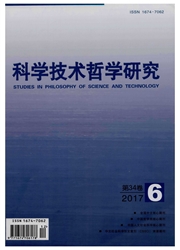

 中文摘要:
中文摘要:
计算主义在解释人类认知现象中所遭遇的种种解释难题,引发了许多哲学家的思考。威尔逊认为,过去的计算主义可称之为"窄计算主义"。这种计算主义在解释人类认知现象时,主要强调了认知过程中的计算逻辑、形式,忽视了认知主体与外在认知对象的关联性,从而使认知计算主义陷入解释困境。为此,我们有必要提出一种"宽计算主义",拓展计算、表征等传统计算主义的核心概念,把"计算主义"解释延伸至大脑之外。这种"宽计算主义"揭示了计算的语义性,丰富了我们对计算、表征等概念的理解,为走出认知计算主义的解释困境树立了新路标,但却没有提出完整的解释框架。从根本上破解认知计算主义的解释难题,仍将任重道远。
 英文摘要:
英文摘要:
Philosophers have encountered various problems when they try to explain human cognitive phenomenon with computationalism. Robert Wilson thinks that computationalism in the past could be called "narrow computa- tionalism". It emphasizes the understanding of computational logic and formalization during the cognitive progress, but ignores the correlation between the cognitive subject and the external world. Cognitive eomputationalism has been caught in interpretation trouble. Therefore, it's necessary for us to propose a new "wide computationalism", expanding the core concept of traditional eomputationalism such as computation and characterization. That is, ex- tending the interpretation of "eomputationalism" to the outside of the brain. The "wide computationalism" can not only help cognitive computationalism to get out of the trouble, it also reveals the semantic character of computation and enriches our understanding of computation and characterization.
 同期刊论文项目
同期刊论文项目
 同项目期刊论文
同项目期刊论文
 期刊信息
期刊信息
